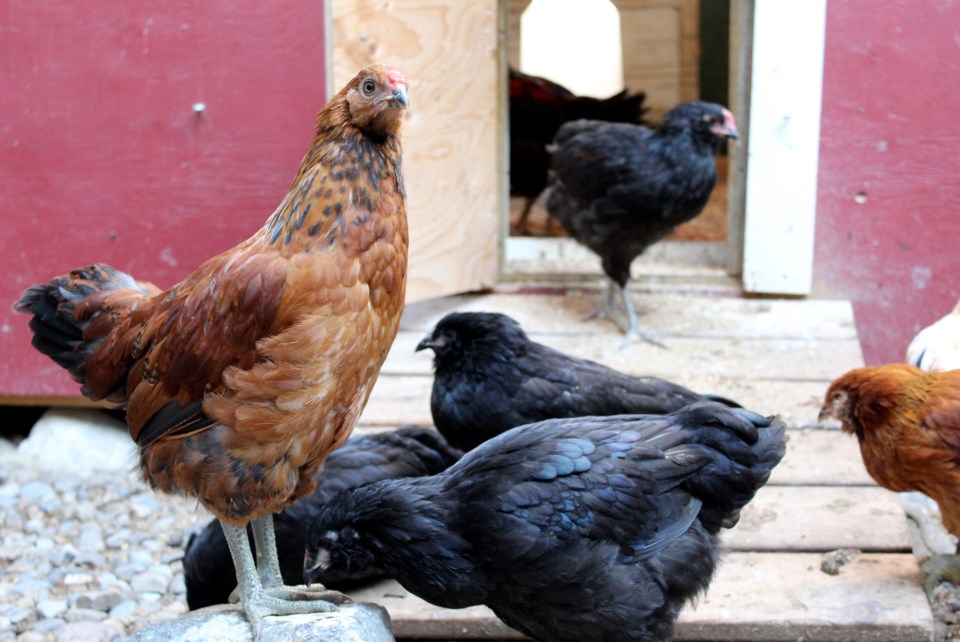Any Cochranites that were hoping to add chickens as a part of their family of pets will have to hold off after Town Council voted decisively, six to one, on Monday to reject a motion that would have initiated a “backyard chickens” pilot program.
The Urban Hens engagement and pilot program issue is one that has roots dating back to 2017, when Town administration first presented plans for a pilot program to council. The program failed to get approval eight years ago due to “concerns over wildlife conflicts, noise, and sanitation,” according to the administration's report to council.
Town administration says that since 2017 evidence from other jurisdictions has shown that the concerns can be effectively mitigated through “structured regulations, mandatory education, and enforcement strategies.”
There are 23 other municipalities within Alberta, including Airdrie, Beaumont, Blackfalds, Brooks, Calgary, Cold Lake, Devon, Diamond Valley, Edmonton, Fort Saskatchewan, Grande Prairie, Innisfail, Lacombe, Lethbridge, Medicine Hat, Okotoks, Olds, Pincher Creek, Red Deer, St. Albert, Stoney Plain, Strathmore, and Wetaskiwin who have implemented pilot projects, evaluated results, and incorporated permanent Urban Hen Programs.
“The proposed Cochrane pilot project would follow established models, incorporating best practices from across Alberta,” the council report reads. “The pilot would include clear guidelines for coop design, sanitation, licensing, space and setback requirements, properties eligible and ineligible, waste and food storage, hen care and limiting households to two to four hens.”
A crucial element of the pilot is the Chickens 101 Online course, a mandatory training session that would cover all aspects of hen care, including bio-security, predator protection, winterizing, and end-of-life planning.
Administration said the course is recognized by numerous municipalities across Alberta and has helped reduce complaints and neighbour conflict rates in jurisdictions where it is required. Administration officials told councillors that the estimated startup cost for participants in an Urban Hen Pilot ranges from $625 to $1,250 per household, with monthly upkeep between $25 to $50.
The program would also cost a lot of working hours for administration employees. Administration estimated in their report that the time commitment for staff to run the pilot program would be between 400 and 540 hours, and cost an estimated $22,000 to $29,700.
For most on council, the cost both in time and resources, was too much.
“I don’t think this is a good return on investment,” said Mayor Jeff Genung. “Regardless of the number of hours that are expended on this, whether it's 400 or 100, I don’t think this is a priority for our community at this point, given the fact that the cost is too high and it doesn’t serve enough residents.”
Coun. Patrick Wilson was the champion of the pilot program on council and sole vote in favour. He advocated for the implementation of a program which aligned with administration's recommendations. He said he had heard from a lot of people that cared about the program.
“This is more about the ability to do what you want in your own yard," Wilson said. "I’m bringing this up for people that do care. I think there should be a way to make this item happen…that doesn’t cost $25,000.”
Other councillors agreed that the price tag and hours required to make the pilot program work would not be worth it. But Genung, who had the last word on the subject, said that there are other issues council should be prioritizing instead of a pilot program for backyard chickens.
“We have so many other initiatives that we could be putting these resources towards,” he said. “There are other things better suited for our resources at this time.”




